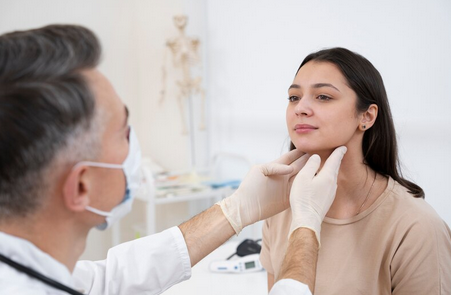
TMJ Treatment – Improve Your Jaw Pain and Related Symptoms
TMJ treatment can improve your jaw pain and related symptoms, such as neck/shoulder pain, ear pain/ringing in the ears, and facial swelling. These symptoms are caused by a jaw/joint injury, teeth grinding and clenching (bruxism), or untreated dental problems.
The most common TMJ treatment Raleigh NC options are: dental appliances, mouthguards, physiotherapy, and injections. These therapies are effective for many patients with TMD.
Dental Appliances
Many patients suffering from TMJ symptoms find relief with oral appliance therapy. These splints are similar to a night guard, but designed to fit over the top or bottom teeth. These appliances are available in both permanent and removable forms and can help treat snoring, reduce TMJ pain, and even restore healthy teeth.
Oral appliances can also be used to address obstructive sleep apnea, a common cause of TMJ and facial pain. The devices work by repositioning the lower jaw forward, keeping the airway open and reducing snoring and sleep apnea.
A consultation with a dentist can help to determine the cause of your TMJ or sleep disorders and recommend a treatment plan. The best treatments can alleviate symptoms, allowing you to sleep better and feel more alert throughout the day. Treatments may include oral appliance therapy or other modalities such as physiotherapy, chiropractic care and/or injections. This approach can be highly effective, and you will often experience noticeable relief in just a few short sessions.
Mouthguards
Mouthguards are custom-fitted devices that help alleviate jaw pain, clenching and grinding (bruxism) and TMJ problems. These dental splints are worn at night to keep the teeth apart and reduce strain on the jaw joints and muscles. They may also be used to correct misaligned teeth.
People who play contact sports like boxing, basketball, hockey, or lacrosse are good candidates for mouthguards to protect their teeth and dental work from injury. Mouthguards are especially beneficial for people with braces or fixed dental appliances in the upper teeth area.
Bruxism is another condition that can cause jaw pain, so our dentists often recommend mouthguards for this problem as well. These dental appliances are worn at night to keep the top and bottom teeth separated and decrease the intensity of bruxism, which can also alleviate TMJ symptoms. This is a conservative treatment option that can have life-changing results for patients. We also offer occlusal adjustments to correct the misaligned bite that contributes to TMD symptoms.
Physiotherapy
Pain Relief: Manual therapy, exercises and stretches can alleviate jaw pain and improve jaw mobility. Jaw function can be restored which will make eating, drinking and other activities more comfortable. Education and Self-Management: Physiotherapists will teach you techniques like relaxation methods that can help to reduce the amount of stress you experience. This can help to prevent clenching or grinding of the teeth, a common cause of TMJ symptoms.
Taking a holistic approach, a physical therapist can assess the head/neck/TMJ area to identify the root cause of your symptoms. They can also offer guidance on lifestyle changes that may help to manage a flare up or to prevent TMJ pain and discomfort in the future.
Symptoms of TMJ are caused by problems with the chewing muscles, the jaw joint and surrounding ligaments and nerves. This can affect the face, neck and shoulders causing facial pain, a clicking or popping sound when you open or close your mouth, a locked jaw or a headache.
Injections
The temporomandibular joint (TMJ) is the hinge-like connection between your jaw and skull. It enables you to move your mouth, speak, swallow and breathe. When this joint and its surrounding muscles become strained, painful, or damaged, you may experience TMJ treatment Raleigh NC. These include a clicking or popping sound when you move your jaw, difficulty opening and closing your mouth, chewing or yawning, tooth sensitivity, and headaches.
Creedmoor Road General Dentistry offers a non-invasive, minimally invasive approach to TMJ and Sleep Therapy to help relieve your symptoms. Our team has undergone extensive education and training in TMJ and Sleep Therapy, gaining expertise on a local, regional and international basis.
BOTOX injections target overactive jaw muscles to reduce clenching and provide relief from TMJ pain and discomfort. This is an off-label use of the product and is not covered by medical insurance, but is growing in popularity among patients and dentists.


